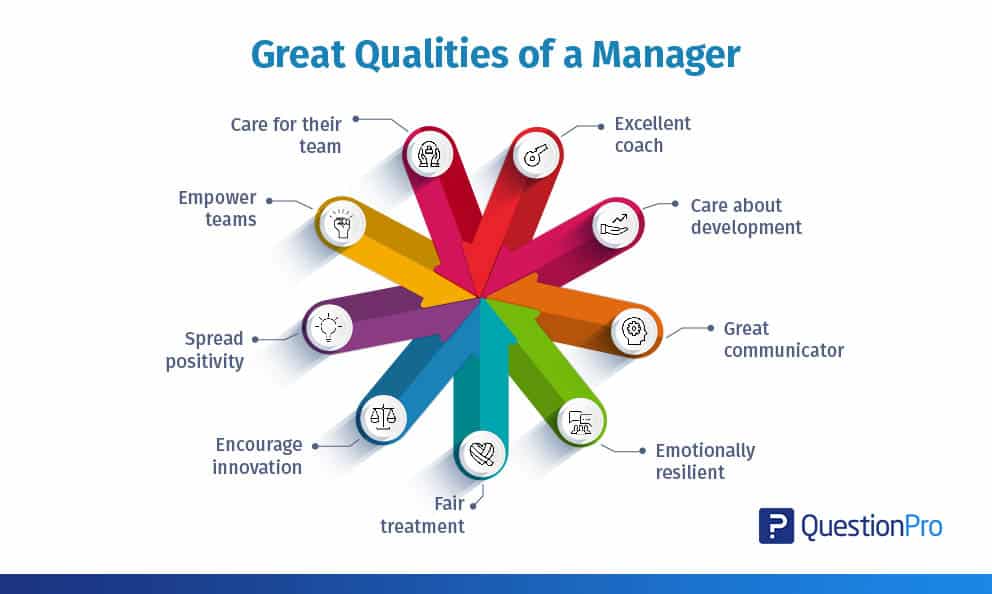Management
I - Introduction
1/ Vocabulary exercises
- Exercise 1 : Fill the document bellow
- Exercise 2 : These words look like French. They are all adjectives. Translate them.
efficient = ……………………………… financial = ……………………………… internal = ………………………………
human = ……………………………… physical = ……………………………… major = ………………………………
Exercise 3 – Match the words with their definition and then translate them.
Words :
efficient /effective/a task/a strategy/the workforce/a firm/profit/a charity/a shareholder/an owner/a supplier
Definitions :
- which is able to do some work successfully, without wasting time or energy.
- which works well and produces the results or effects intended and expected.
- an assigned piece of work which has to be done and be finished within a certain time.
- an organisation which produces & sells something or provides services that people pay for.
- an organisation which raises money so as to help people who are poor, disabled or ill.
- all the people in an area that are physically able to work and available to have jobs.
- a person who owns something; who has something that belongs to them.
- the money you have made after selling sth at a higher price than what it cost you to make.
- a person who has bought shares of a company.
- a company or organisation that sells or provides goods or equipment to customers.
- a general plan or set of plans elaborated to achieve something over a long period.
2/ Oral comprehension
Watch and listen :
Fill the document bellow :
Check your vocabulary :
II - How to be a good manager ?
1/ How does one define a good manager?
https://www.questionpro.com/
Managers are a lot of things to a lot of people in an organization. For subordinates, they are mentors and leaders. For colleagues, they are someone to compete with (in a healthy manner), strategize on new initiatives, discuss new challenges, and come up with solutions. For management teams, they are team managers, leaders who contribute to revenue, role-models for employees, leaders of tomorrow, etc.
A good manager's definition can vary from organization to organization. A good manager is defined as a leader who can bring out the best performance from his team, train the team to attain new heights, help everyone align with company goals, treat people with respect, and help achieve new goals every day. A good manager ensures great employee experience, a journey that every employee goes through from hire to exit.
Many employees leave organizations on account of bad or ill-suited managers. Having the right person for the role is paramount for an organization's success. They help deal with employee retention and boost employee engagement, workforce productivity, staff morale, etc. positively.

Tasks:
1. Highlight the roles managers play in an organisation.
2. Circle what you can do with a manager if you are a colleague –
Build up your vocabulary:
1. Find the equivalents for
a) entrainer
b) atteindre des sommets
c) s'aligner sur
d) (s') assurer, garantir
e) un voyage
f) l'embauche
g) en raison de / à cause de
h) inadapté, qui ne convient pas
i) primordial
2. Translate the following words:
a) treat
b) exit
c) boost
d) employee retention
e) workforce productivity
f) staff morale
2/ What Are Management Skills?
Management skills are applied to a broad array of functions in areas like production, finance, accounting, marketing, and human resources. Common components of management in different areas include: selection, supervision, motivation and evaluation of staff, scheduling and planning of workflow, developing policies and procedures, measuring and documenting results for a group or department, solving problems, developing and monitoring budgets and expenditures, collaborating with other staff and departments, and leading and motivating employees.
Most management skills are related to six fundamental functions: planning, organizing, coordinating, directing, leadership, and oversight.
https://www.thebalancecareers.com/management-skills-list-2062427

Work on words : find the English equivalents for the following words:
un large éventail ● la comptabilité ● des composants ● le personnel ● gestion d'agenda ● la charge de travail ● une politique ● mesurer ● un service, un domaine ● résoudre ● surveiller, contrôler ● des dépenses ● la surveillance
3/ How to become a good manager?
A - What is your opinion about this quotation?
"Focus on a few key objectives … I only have three things to do. I have to choose the right people, allocate the right number of dollars, and transmit ideas from one division to another with the speed of light. So I'm really in the business of being the gatekeeper and the transmitter of ideas." – Jack Welch
B - Match the skills and the explanations
Interpersonal Skills ● Communication ● Motivation ●Organization ●Delegation ●Forward Planning● Problem Solving ● Strategic Thinking ●Commercial Awareness ● Mentoring ●
- You must be organized. Management is made up of many parts, and they cannot be handled on the fly.
- The same is true for motivating people to follow your management lead.
- While managers aren't exclusively dealing with people, they still must interface with them, and the better they do so, the smoother the management process.
- Being able to manage is being able to communicate what you need to who needs to do it.
- A manager is a planner who looks towards the future and how to set themselves up for it today.
- Managers face issues daily, and they must think creatively to solve them.
- No one can manage everything themselves, and if they try, they're going to fail. So, share responsibilities and tasks with others.
- In order to get things done, sometimes a manager must become a mentor, offering guidance or training where it's needed.
- Part of that planning is thinking strategically about the project, the organization and how to align them moving forward.
- Managers are not working in a vacuum and need to have a keen sense of the business and commercial environment in which they operate.
III - Interview
1 /GRAMMAR TOOL : ASKING QUESTIONS
- Yes / No question
- WH- Questions qui commencent par un mot interrogatif
ORDRE DES MOTS : (Mot Interrogatif) + auxiliaire + sujet + verbe + complément
Mot Interrogatif : WHAT
Interroge sur ? : Qqch / un sujet /un objet
Sens en français : Que ?
Mot Interrogatif : WHO
Interroge sur ? :
Sens en français :
Mot Interrogatif : WHERE
Interroge sur ? :
Sens en français :
Mot Interrogatif : WHEN
Interroge sur ? :
Sens en français :
Mot Interrogatif : HOW
Interroge sur ? :
Sens en français :
Mot Interrogatif : HOW MUCH + Nom dénombrable
Interroge sur ? :
Sens en français :
Mot Interrogatif : HOW MANY + Nom dénombrable pluriel
Interroge sur ? :
Sens en français :
Mot Interrogatif : HOW OFTEN
Interroge sur ? :
Sens en français :
Mot Interrogatif : HOW LONG
Interroge sur ? :
Sens en français :
Mot Interrogatif : HOW FAR
Interroge sur ? :
Sens en français :
Mot Interrogatif : HOW OLD
Interroge sur ? :
Sens en français :
Mot Interrogatif : HOW TALL/HIGH/SMALL
Interroge sur ? :
Sens en français :
Mot Interrogatif : HOW + adj
Interroge sur ? :
Sens en français :
Mot Interrogatif : WHY
Interroge sur ? :
Sens en français :
Mot Interrogatif : WHAT TIME
Interroge sur ? :
Sens en français :
Mot Interrogatif : WHOSE
Interroge sur ? :
Sens en français :
Mot Interrogatif : WHICH
Interroge sur ? :
Sens en français :
Au présent simple, il faut utiliser l'auxiliaire "DO" ou "DOES" à la 3ème personne du singulier.
Au prétérit (passé), l'auxiliaire est "DID"
Aux autres temps, on utilise le même auxiliaire qu'à la forme affirmative ou négative.
On peut aussi faire des questions avec les auxiliaires modaux : CAN, MUST, WILL, SHOULD, COULD…
Traduisez en anglais les questions suivantes :
- Que fait un manager dans une organisation ?
- Pourquoi le manager doit-il avoir de bonnes compétences en communication ?
- Quand peut-on nommer un nouveau manager ?
- Quelles fonctions le manager utilise-t-il ?
Comment un directeur organise-t-il les ressources humaines ?
Pourquoi pourriez-vous être un bon directeur ?
Comment un directeur peut-il contribuer à la réussite de l'entreprise ?
Quels rôles doit-il jouer dans l'entreprise ?
Comment peut-il trouver des solutions aux défis de l'entreprise ?
Quelles sont les compétences les plus importantes pour être un bon directeur ?
Quand les employés quittent-ils une entreprise ?
Pourquoi faut-il savoir résoudre des problèmes ?
Translate in french the following questions:
Do you know what the first role of a manager is?
What type of resources must a manager allocate?
Which functions does the manager use to run a company?
Can you give me an example of the function of control?
What qualities should a manager have?
Can you tell me 2 important qualities you have to be a great manager?
Are you a great communicator?
How do you learn management skills?
Which skills do you most often use as a manager?
Which solutions can you propose if you have a huge work-flow
Were you a manager before coming to this interview?
2/ Final task
A/ Vocabulary tools :
How to start and introduce the interview
Hello ! / Good morning / afternoon / evening!
Nice to meet you / Pleased to meet you
I hope you feel good
Can you introduce yourself?
Can/May I ask you a few questions?
Would you agree to answer a few questions about …
Expressing reactions & feelings
It's very interesting … / It can be useful
You're right… / are you sure?
Thank you / Sorry
I don't know …
I don't understand, can you repeat?
I don't agree / I agree…
Gap fillers
"That's right, ... "
"OK, ... "
"So, now.... "
"Yes, of course…"
"Indeed"
How to finish the interview
It's been very interesting to talk about … with you.
Thank you for coming … / for your time / for answering my questions…
I will call you if…We will call you to keep you informed.
Goodbye / have a good day / see you soon / I hope to see you again…
B/ Perform an interview
In pairs, you will have to prepare and then conduct a job interview between a recruiter and a manager using the vocabulary and grammar of this sequence.
IV - TEST
You have to learn the vocabulary and the definitions.
Be sure you have understood the lesson.
It is still time to ask for help!
